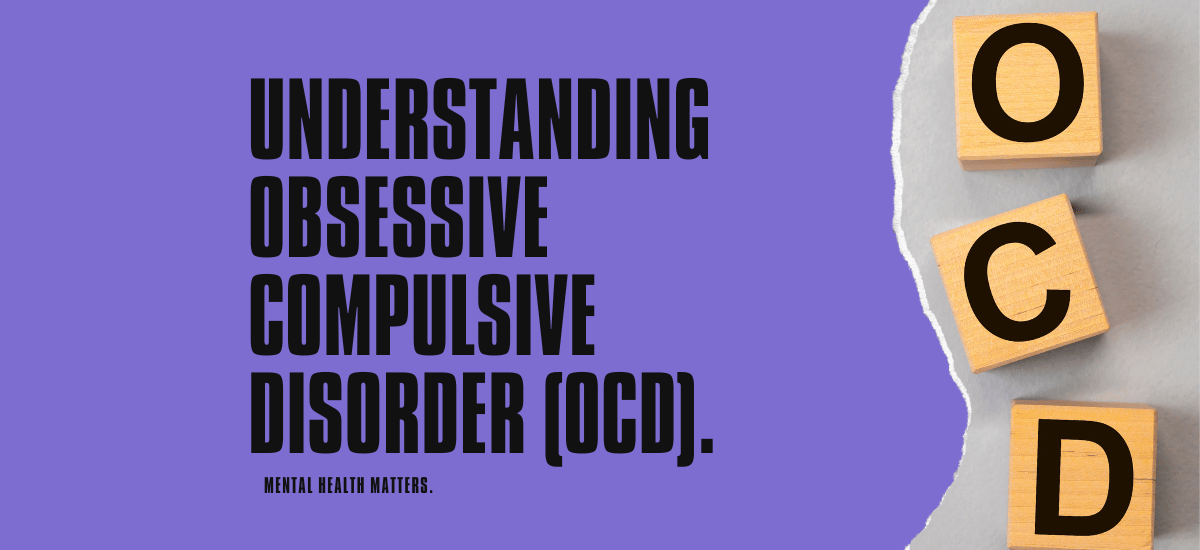Obsessive Compulsive Disorder (OCD): Symptoms, Causes, And Treatment

Obsessive Compulsive Disorder (OCD) is a mental health disorder characterized by persistent, unwanted thoughts, ideas, or sensations (obsessions) that drive an individual to repetitive behaviors or mental acts (compulsions). These obsessions and compulsions interfere with daily activities and cause significant distress.
Symptoms of OCD
The symptoms of OCD can vary from person to person, but generally include:
- Recurrent and persistent thoughts, urges, or images that cause anxiety or distress.
- Repetitive behaviors or mental acts that an individual feels driven to perform in response to an obsession or according to strict rules.
- The behaviors or mental acts are aimed at preventing or reducing anxiety or distress, but are not realistically connected to the obsession.
- The individual recognizes that the obsessions or compulsions are excessive or unreasonable.
Some common examples of obsessions include fear of contamination, fear of causing harm to others, and excessive worry about order or symmetry. Common examples of compulsions include excessive cleaning and handwashing, repeating certain words or prayers, and counting and arranging objects in a specific way.
Causes of OCD
The exact cause of OCD is not fully understood, but research suggests that it may be caused by a combination of genetic, environmental, and neurobiological factors. There is evidence that OCD is associated with changes in certain brain chemicals called neurotransmitters, specifically serotonin. OCD may also be associated with structural changes in certain areas of the brain.
Treatment of OCD
Treatment for OCD typically includes a combination of medication and therapy.
Medication:
Antidepressant medication such as selective serotonin reuptake inhibitors (SSRIs) are most commonly used to treat OCD. These medications work by increasing the levels of serotonin in the brain which can help reduce the symptoms of OCD.
Therapy:
Cognitive-behavioral therapy (CBT) is the most effective form of therapy for treating OCD. This type of therapy focuses on helping individuals identify and change negative thoughts and behaviors related to their obsessions and compulsions.
Exposure and response prevention (ERP) is a specific type of CBT that is effective in treating OCD. This therapy involves exposing the individual to the source of their obsession while preventing them from performing the compulsive behavior.
In conclusion, Obsessive Compulsive Disorder (OCD) is a mental health disorder characterized by persistent, unwanted thoughts, ideas, or sensations (obsessions) that drive an individual to repetitive behaviors or mental acts (compulsions). The causes of OCD are not fully understood, but a combination of genetic, environmental, and neurobiological factors are thought to be involved. Treatment for OCD typically includes a combination of medication and therapy, specifically cognitive-behavioral therapy and exposure and response prevention. With proper treatment and support, individuals with OCD can learn to manage their symptoms and lead fulfilling lives.
Related Articles

Letting Go With Grace: Emotional Tools for Closure
Letting go is never easy. Whether we are parting ways with a loved one, ending a relationship, leaving a job, or saying goodbye to a cherished chapter of life, the emotional weight can feel overwhelming. Yet, closure is essential for our emotional well-being. Without it, we carry unresolved grief, anger, regret, or longing that can seep into new relationships and experiences, holding us back from healing and growth.

Healing After Heartbreak: A Mental Health Perspective
Heartbreak doesn't just break your heart—it can shatter your sense of identity, peace, and purpose. Whether the end was expected or abrupt, mutual or one-sided, short-lived or long-term, the aftermath often leaves people emotionally disoriented. In Indian culture, where societal expectations and family involvement in romantic relationships are prevalent, the pain is not just personal—it is public. Yet, very few are taught how to heal from emotional loss in a healthy, sustainable way.

How Depression Can Affect Your Relationship—And What You Can Do
Depression is not just an internal struggle—it ripples outward, affecting relationships, routines, and the emotional fabric that holds people together. When someone is dealing with depression, it's not only their world that becomes dim—it can cast a shadow over their most intimate connections too. In a country like India, where open conversations about mental health are still rare and love is often equated with endurance, depression within a relationship can become invisible, misunderstood, or misjudged.

When One Partner Struggles: Supporting Mental Health in Relationships
Relationships are a beautiful blend of shared experiences, emotional growth, and mutual care. But they also come with challenges—especially when one partner is struggling with their mental health. In a society like India, where mental health is still heavily stigmatized, couples often find themselves ill-equipped to handle psychological distress in their relationship.

Are You Really Listening? Improving Communication in Relationships
Communication is the lifeline of every meaningful relationship. Yet, in countless homes—particularly across India—couples, friends, and families frequently experience breakdowns not due to a lack of words, but because of a lack of listening. We often equate speaking with communicating and hearing with understanding. But true communication involves something far deeper: active, empathetic, and intentional listening.

Fighting Fair: How to Argue Without Breaking Your Bond — 5 Common Relationship Triggers and How to Manage Them
Arguments are an inevitable part of every relationship. But in India, where relationships often extend beyond two individuals to entire families, traditions, and unspoken expectations, conflicts can feel even more overwhelming. How do you fight fair with your partner without damaging the love you’ve built?
